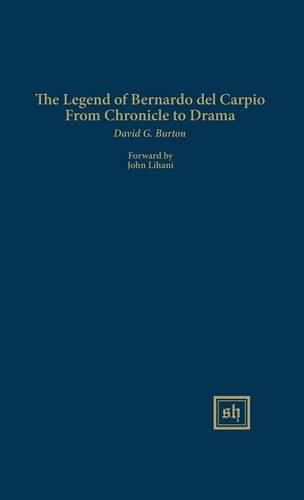Readings Newsletter
Become a Readings Member to make your shopping experience even easier.
Sign in or sign up for free!
You’re not far away from qualifying for FREE standard shipping within Australia
You’ve qualified for FREE standard shipping within Australia
The cart is loading…






Comedia de la libertad de Espana por Bernardo del Carpio, a play written in 1579 by Juan de la Cueva, is based upon events in the life of the legendary hero of the Spanish Middle Ages. Professor Burton demonstrates in this first complete study of the play that Cueva goes beyond the mere presentation of Bernardo del Carpio and his victory over Charlemagne and the French army at Roncesvalles. The study is important in the criticism of the early Spanish Theater because it shows that Cueva imbued his play with many levels of meaning, as the exultation of a national hero, as a political allegory of Philip lI’s attempt to add Portugal to the Spanish crown, as a triumph of virtue over vice, and, at its heart, as a statement of faith in which forgiveness and the promise of redemption follow sin and repentance. Burton deserves thanks for his interesting analysis of Cueva’s style. Future Bernardo studies will have to take this work into consideration. -Anthony J. Cardenas, Journal of Hispanic Philology.
$9.00 standard shipping within Australia
FREE standard shipping within Australia for orders over $100.00
Express & International shipping calculated at checkout
Comedia de la libertad de Espana por Bernardo del Carpio, a play written in 1579 by Juan de la Cueva, is based upon events in the life of the legendary hero of the Spanish Middle Ages. Professor Burton demonstrates in this first complete study of the play that Cueva goes beyond the mere presentation of Bernardo del Carpio and his victory over Charlemagne and the French army at Roncesvalles. The study is important in the criticism of the early Spanish Theater because it shows that Cueva imbued his play with many levels of meaning, as the exultation of a national hero, as a political allegory of Philip lI’s attempt to add Portugal to the Spanish crown, as a triumph of virtue over vice, and, at its heart, as a statement of faith in which forgiveness and the promise of redemption follow sin and repentance. Burton deserves thanks for his interesting analysis of Cueva’s style. Future Bernardo studies will have to take this work into consideration. -Anthony J. Cardenas, Journal of Hispanic Philology.